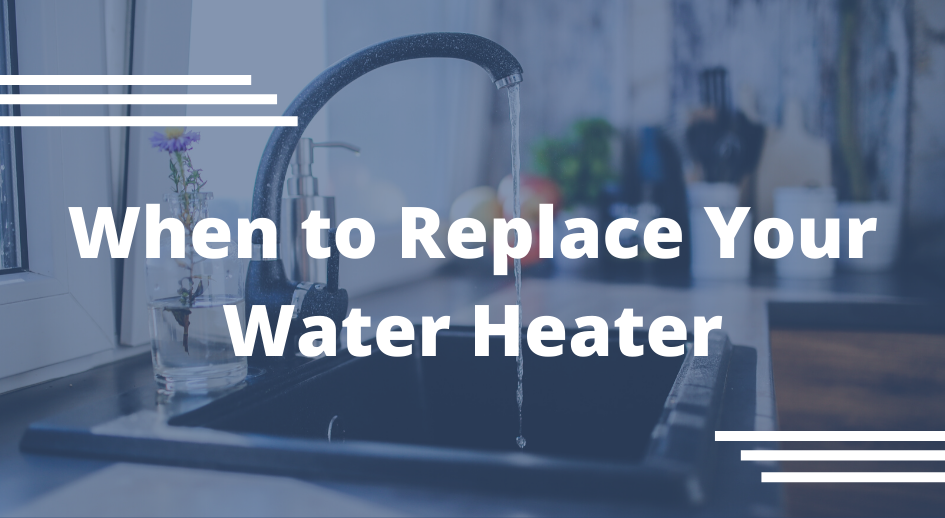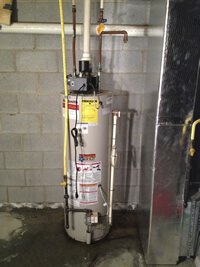
When to Replace Your Water Heater
As a homeowner, whether you own a newer build or an older home, replacing major appliances and doing other types of renovations or work can turn into a big job. Recognizing when it’s time to replace items such as your water heater can help you plan ahead and feel more prepared for the work.
When replacements such as this come as a surprise, it can cause disruption and other issues. If your water heater isn’t working like it used to or if you just aren’t getting enough hot water in the sinks and shower, it may be time for a replacement.
While repairing any problems will be your first choice because of the lower cost, there are signs that you need a total replacement.

How Long Water Heaters Last
Water heaters have a relatively long lifespan — about eight to ten years, depending on the use and other factors. Unless you build your home, you may not know exactly how old your water heater is.
During the home buying process, you should always ask the age of the major appliances in the home, including the water heater. Because replacing these appliances can turn into a costly and long process, knowing in advance about when to expect them can be a huge help.
Age is an important sign in deciding whether you need to replace your water heater, but it isn’t the only one.
Signs to Replace Your Water Heater
Besides age, these are some of the signs that may point to replacing your water heater. Keep an eye and ear out for these indicators:
- Strange noises: Rumbling, clanging and other odd noises coming from the water heater may show it’s nearing the end of its lifespan. When water heaters get older, sediment builds up in the bottom of the machine and grows hard. That hardened sediment can damage the heater and make the entire system less efficient.
- Rust: If you run the hot water and see it’s rusty, you probably need a replacement instead of a repair. This effect comes from rust buildup inside of the water heater. However, rusty water isn’t always a sign of issues with your water heater — the pipes may be the culprit.
- Standing water: Leaks and faults with the water heater’s tank are difficult to repair. If you notice this sign, make sure other elements of the system that connect to the tank aren’t the real reason for the leaks.

If you see any of these signs in your home or experience other issues, you need to find a local professional you can trust to help you find the best solution.
Trust Ranck Plumbing, Heating & Air Conditioning for Your Water Heater Replacement
We’re experts in replacing old water heaters and will help you find the perfect solution for your home. We’ll work with you closely to figure out your budget and other needs for your new water heater. Then we help you find the right system, complete with expert installation.
To learn more about our services or to schedule an appointment, please contact us today!